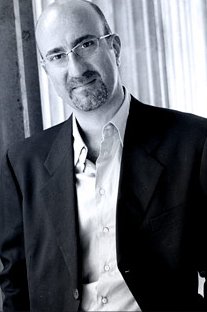 Raymond Khoury moved to Rye, New York, from his native Lebanon at the outbreak of the civil war there in 1975. After graduating from Rye Country Day School, he returned to Lebanon to study architecture at the American University of Beirut. During his years there, in between repeated flare-ups of fighting, he illustrated several children’s books for Oxford University Press’s Middle East office. Khoury completed his degree just as the civil war erupted again, and was evacuated out from the city in February, 1984, by the Marine Corp’s 22nd Amphibious Unit on board a Chinook helicopter.
Raymond Khoury moved to Rye, New York, from his native Lebanon at the outbreak of the civil war there in 1975. After graduating from Rye Country Day School, he returned to Lebanon to study architecture at the American University of Beirut. During his years there, in between repeated flare-ups of fighting, he illustrated several children’s books for Oxford University Press’s Middle East office. Khoury completed his degree just as the civil war erupted again, and was evacuated out from the city in February, 1984, by the Marine Corp’s 22nd Amphibious Unit on board a Chinook helicopter.
Khoury moved to London and joined a small architecture practice. The architecture scene in the mid-80s throughout much of Europe was going through a severe downturn, and the work was far from fulfilling. He decided to explore other career options and applied to the European Institute of Business Administration (INSEAD) in Fontainebleau, France. After graduating from its MBA program, he moved back to London where he joined Banque Paribas Capital Markets, selling gold-linked convertibles and other far less exotic financial instruments.
He left the world of investment banking to return to his creative roots. During a visit to the Bahamas to explore a real-estate opportunity there, he met a Wall Street banker who dabbled in the film business, developing screenplays with writers in Hollywood. Khoury bounced an idea off the banker, the idea stuck, and they agreed to develop it into a screenplay by hiring a professional screenwriter. Several conference calls later, the outlines coming back from Los Angeles weren’t quite what Khoury had in mind. He decided to write an outline himself, to give the screenwriter a clearer picture of how he saw the movie. Upon receiving the outline, Khoury’s partner called him up and told him, “Our man in L.A. isn’t going to write this movie for us. You are. You’re a writer.”
Khoury wrote the screenplay, which was shortlisted for a Fulbright Fellowship in Screenwriting award that year. His next screenplay, a semi-autobiographical screenplay about his college years during the civil war, was also shortlisted for the award a year later. In 1996, he optioned the film rights to Melvyn Bragg’s novel, The Maid of Buttermere, writing the screenplay adaptation himself while completing an original screenplay, The Last Templar. The Maid of Buttermere found its way to Robert DeNiro, who shortly after announced in Variety that he would be producing it and playing the lead role of Colonel Hope.
Since then, Khoury has been working as a screenwriter and producer both in London and in Los Angeles. Since the release of his international bestseller The Last Templar and completing work on the BBC hit show Spooks, known as MI:5 in the US, and the Emmy-award winning BBC series Waking The Dead, he is now concentrating on his novels.
See Raymond Khoury signed titles at www.vjbooks.com





Trackbacks/Pingbacks